
John Jewell
Dr John Jewell is the Director of Undergraduate Studies for the Cardiff BA in Journalism, Media and Cultural Studies.
Research and teaching interests include the representation of asylum seekers and refugees in the British media and the history and development of the popular press. I am also interested in advertising, propaganda and political communication.
Less ![]()
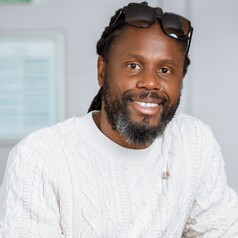
John Kandulu
Research Fellow, College of Business, Government and Law, Flinders University
John has over 15 years of professional experience as an applied economist, having worked across the education, not-for-profit, private and government sectors. His research focuses on formulation and assessment of policies related to natural resource and environmental management. He has contributed to various projects, including those focused on evaluating policies, programs, and projects, as well as issues concerning food and water security, biosecurity, renewable energy policy, outreach services, and water quality management.
He employs a range of analytical techniques to guide policy and investment decisions. His work involves assessing the effectiveness of new policies, programs, and projects, and calculating the anticipated net returns on potential investment opportunities. Currently, his research interests are centred on the design and evaluation of effective diversity and inclusion policies to support inclusive natural resource management.
Less ![]()
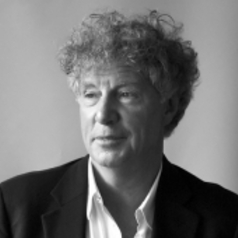
John Keane
John Keane is co-founder of the Sydney Democracy Network (SDN) and Professor of Politics at the University of Sydney and the Wissenschaftszentrum Berlin (WZB). His full-scale history of democracy, The Life and Death of Democracy (2009), was short-listed for the 2010 Non-Fiction Prime Minister’s Literary Award, and recently ranked (by one of Japan's leading newspapers, Asahi Shimbun) within the top three non-fiction books published during 2013 in Japan. His new book, Democracy and Media Decadence has just been published.
Less ![]()
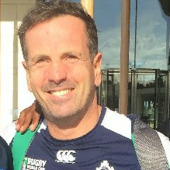

John Kim
Assistant Professor of Medicine, University of Virginia
Dr. John Kim, M.D., M.S., grew up in Maryland and attended undergraduate school at Johns Hopkins University. After graduating, he went on to receive his medical degree from the University of Maryland School of Medicine. He moved to Dallas to complete a residency at the University of Texas Southwestern, serving an additional year as Chief Resident.
He followed this up with a fellowship in Pulmonary and Critical Care at Columbia University. Dr. Kim completed a T32 research training fellowship at Columbia and earned a Master of Science in Patient-Oriented Research/Biostatistics from the Mailman School of Public Health. In 2019, Dr. Kim joined UVA as an Assistant Professor of Medicine.
Dr. Kim’s research interests are in identifying modifiable risk factors that may contribute to pulmonary fibrosis, with a particular focus in fatty acids and sleep disorder breathing.
Outside of work, Dr. Kim enjoys spending time with his family, running, hiking, cooking, and reading.
Less ![]()

John Kinuthia
Professor and Manager of the Advanced Materials Testing Centre (AMTeC), University of South Wales
My research interests include sustainable development of infrastructure, especially by the utilisation of natural, industrial and agricultural waste streams in both soil and cement-based cementitious systems. My research work aims to reduce the use of traditional cementitious binders such as lime and Portland cement, whose manufacture contributes enormously to atmospheric emissions.
Less ![]()

John Knight
Reader in Anthropology and Ethnomusicology, Queen's University Belfast
John completed his doctorate at the London School of Economics on the topic of depopulation and social change in Japanese mountain villages. Before coming to Queen's, he held the posts of Junior Research Fellow in Modern Japanese Studies at Wadham College Oxford (1992-1995) and Research Fellow at the International Institute for Asian Studies, University of Leiden (1996-1999).
He has undertaken extensive field research in rural Japan on a range of topics, including migration, forestry, farming, and tourism, on which he has published widely. His main area of research is human-animal relations, including hunting, wildlife pests, the use of animals in tourism, and human-animal interactions. His most recent field research has been on Japanese monkey parks as sites of primatology and tourism.
Less ![]()
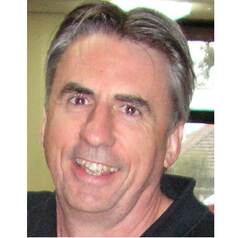
John Koehn
Dr John Koehn is an internationally recognized freshwater fish ecologist with over forty years’ experience. For most of this time was a Principal Research Scientist at the Arthur Rylah Institute for Environmental Research (Victorian Government), where he remains an Honorary Fellow and is also an Adjunct Professor at Charles Sturt University. He has undertaken a wide range of research involving native fishes, their ecology, threats to them and their habits, and restoration of their populations. This work has resulted in over 300 scientific publications and honored with several awards. He has been a member of Ministerial committees, many national recovery teams and advisory/expert panels and provided professional advice to Commonwealth, State and New Zealand research and management agencies.
Less ![]()
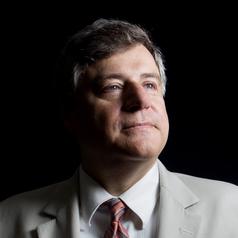
John Kounios
Professor of Psychological and Brain Sciences, Drexel University
John Kounios, PhD, has published cognitive neuroscience research on insight, creativity, problem solving, memory, aging, and Alzheimer’s Disease and coauthored the international Amazon Bestseller, The Eureka Factor: Aha Moments, Creative Insight, and the Brain (Random House). John's research has been funded by the National Institutes of Health and the National Science Foundation and has been reported by The New York Times, The Wall Street Journal, The Times (London), National Public Radio and was featured in BBC Television and Discovery Science Channel documentaries. His work was profiled by The New Yorker and The Saturday Evening Post and is part of a permanent exhibit at Chicago’s Museum of Science and Industry. He is a Fellow of the Association for Psychological Science and the Psychonomic Society.
Less ![]()
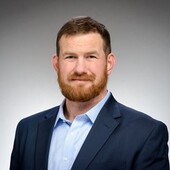


John Licato
Assistant Professor of Computer Science and Director of AMHR Lab, University of South Florida
I have been director of the Advancing Machine and Human Reasoning (AMHR) Lab at USF since 2017. I am an expert in the intersection of AI, natural language processing, human reasoning, cognitive modeling, and argumentation. My work focuses on how to not only advance AI, but to use those advances to make people reason better---whether it's in how they argue with each other, make decisions, solve problems, or work past natural cognitive biases. I was an awardee of the 2017 AFOSR Young Investigator's Program award.
Less ![]()

John Ligon
Assistant Professor of Hematology, University of Florida
My name is John A. Ligon, MD, and I am an assistant professor in the department of pediatrics at the University of Florida College of Medicine. I earned my medical degree from the Baylor College of Medicine in Houston, completed my residency in pediatrics at the University of Texas Southwestern Medical Center in Dallas, and pursued a fellowship in pediatric hematology and oncology at Johns Hopkins University and the National Cancer Institute in Maryland. In the following years, I completed a senior fellowship in pediatric immunotherapy at the National Cancer Institute and another in pediatric sarcoma at Johns Hopkins University. I knew I wanted to be a pediatrician from a young age, as I loved going to my own pediatrician as a kid. This passion for caring for children persisted through medical school and into my residency training, where I was inspired by my amazing mentors and the strength of their patients to pursue additional training in hematology and oncology. I am board-certified in both general pediatrics and pediatric hematology and oncology by the American Board of Pediatrics. In addition to my numerous original research publications and editorial review appointments, I am a member of various professional societies, such as the Children’s Oncology Group and the American Association for Cancer Research. I have been honored with a variety of awards for my research skills and academic excellence, and my research interests include immunotherapy, tumors and bloodstream infections. I am a member of the Pediatric Cancer Immunotherapy Initiative (PCI2) at the University of Florida. I serve as a translational partner with my collaborators, Drs. Elias Sayour and Paul Castillo, to advance new treatments which harness the power of the immune system into early phase pediatric clinical trials. My work is supported by a number of foundations and organizations including the V Foundation, Hyundai Hope on Wheels, the Society for Immunotherapy of Cancer, the National Pediatric Cancer Foundation, the Pediatric Cancer Research Foundation, MIB Agents and the Children’s Miracle Network.
My goal as a physician is to discover new treatments that will allow more children to be cured of their cancer than could be with currently available treatments. I want my patients to know that rather than focusing on one specific type of cancer, I am interested in using the immune system to find ways to cure all kinds of pediatric cancer. The immune system is the same across all kinds of cancer and I believe there is a way to unlock it for many diseases that we currently have trouble treating.
When I’m not practicing medicine, you can find me watching San Antonio Spurs basketball games, playing Magic: the Gathering trading card game and taking care of my three small children.
Less ![]()

John Lowrey
Assistant Professor of Supply Chain and Health Sciences, Northeastern University
John Lowrey’s research takes an operations management approach to the study of food waste, retail operations, and preventative healthcare. Much of his work focuses on the impact of food donations. He works directly with several Feeding America member Food Banks to understand the explicit and implicit benefits of food donations at retail. Importantly, retail donations sustain a secondary market for food and this market serves as a source of nutrition for low-income, food-insecure individuals. His healthcare-related research concerns new models of care delivery that integrate community-based organizations such as food banks and food pantries to coordinate health-related services. These models use systematic screening and referral-based mechanisms to identify and address the patients’ underlying social determinants of health.
Less ![]()
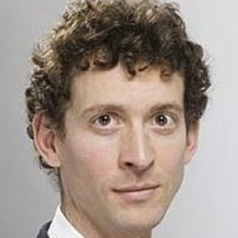
John M Thompson
Jack Thompson is Lecturer at the Clinton Institute for American Studies, University College Dublin. He received his PhD from the University of Cambridge and his MA from the Johns Hopkins University School of Advanced International Studies (SAIS). Dr Thompson’s research focuses on foreign policy and political culture in the United States. He is particularly interested in political (especially presidential) leadership, partisanship, transatlantic relations, and debates regarding American relative decline.
Dr Thompson is currently working on two projects. One explores presidential leadership in US foreign policy. The second explores the emergence of modern conservative political culture.
Less ![]()

John MacArthur
Sustainable Transportation Program Manager, Transportation Research and Education Center, Portland State University
John MacArthur is the Sustainable Transportation Program Manager at TREC at Portland State University and an instructor in civil and environmental engineering, teaching on new & emerging technologies in transportation. He is active in research related to sustainable and equitable transportation, particularly in the areas of emerging tech such as e-bikes, bike share, transit, and the relationship between transportation and public health. Mr. MacArthur is the Section Chair for Transportation Research Board’s AME00 Transportation and Society and a member of Innovative Public Transportation Services and Technologies (AP020). He received his BS in Civil Engineering from Lehigh University and a MS in Environmental Health Sciences from the School of Public Health at the University of Michigan.
Less ![]()
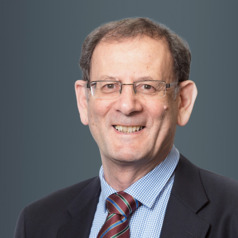
John Madden
Emeritus Professor, Centre of Policy Studies, Victoria University
John is an Emeritus Professor at Victoria University’s Centre of Policy Studies (CoPS). From 2014 to 2020 he was a Professor at VU. Prior to that, John was a Professor at Monash University, where he was CoPS’ Deputy Director from 2004 to 2012. Before joining Monash, John was Director of the Centre for Regional Economic Analysis at the University of Tasmania.
John’s primary research activity is in the area of computable general equilibrium (CGE) modelling. He is the author of FEDERAL, one of the world’s first large-scale multiregional CGE models. Current research projects includes CGE modelling of sub-national taxes, regional effects of higher education, and linked disease-economic modelling. Notable past economic studies include: National Competition Policy, Safety Net Review, Goods and Services Tax, Very Fast Train, Sydney Olympics and the FIFA World Cup. For six months in 1992-93, John was a Scientific Fellow at Erasmus University Rotterdam modelling an eco-tax, and in 2001-02 he was a member of a Stanford University study team on fiscal federalism.
John is a former President of the Pacific Regional Science Association and a former Councillor-at-Large of the Regional Science Association International. He is a past regional editor (Asia-Pacific) of Regional Science Policy and Practice (2012-16) and a current member of the Advisory Board of the Asia-Pacific Journal of Regional Science.
Less ![]()
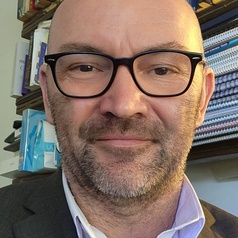
John McAloon
Senior Lecturer, Graduate School of Health, University of Technology Sydney
In the last decade, I have worked in various settings including the public service, private practice, university education and clinical supervision. I have qualifications in Film and Television, Education and Clinical Psychology and my PhD research looked at the development of substance use and mental health in young people.
My work with child and adolescent clients has seen me utilise behaviourally based parenting interventions, evaluate Out of Home Care residential services and develop and supervise clinical teams working in these areas. I have worked in a range of specialist clinics Queensland and NSW in child behaviour, child and adolescent anxiety, and adolescent secure care.
My recent work has seen me develop and deliver prevention and early intervention services for children, young people and their families/carers; develop, deliver and evaluate services for Indigenous Australians, within rural and remote contexts and for adolescents in Out of Home Care; produce a range of service documents including clinical guidelines and service specifications; evaluate Out of Home Care services; respond in clinical terms to complexity and comorbidity in mental health and to the role parents and carers play in the development of social, emotional and behavioural problems.
I am an endorsed as a Clinical Psychologist and as a supervisor with the Psychology Board of Australia and my supervision of others has been undertaken within the professional settings I have worked in and in an external capacity. I have supervised clinical master’s students, clinical doctorate students and clinical graduates.
Less ![]()
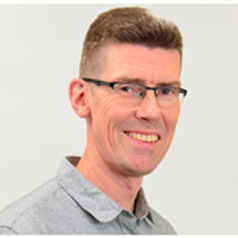
John McCormick
Professor of Microbiology and Immunology, Western University
Our laboratory has a primary focus on bacterial exotoxins produced by the bacterial pathogens Streptococcus pyogenes and Staphylococcus aureus. One major focus is on the bacterial superantigens which function by directly activating T cells of the adaptive immune system, and we are interested in understanding how the toxins contribute to both colonization and disease. In addition, we are interested in mechanistic studies of toxic shock syndrome, and in particular the regulatory cues that control expression of the superantigen toxic shock syndrome toxin-1 (TSST-1). Lastly, we are engineering superantigens for use as targeted anti-cancer immunotherapeutics.
Less ![]()
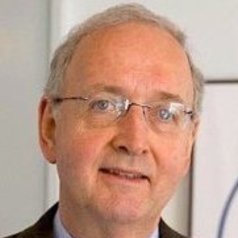
John McDonough
John E. McDonough, DrPH, MPA is Professor of Public Health Practice in the Department of Health Policy & Management at the Harvard T.H. Chan School of Public Health and Director of the HSPH Center for Executive and Continuing Professional Education.
In 2010, he was the Joan H. Tisch Distinguished Fellow in Public Health at Hunter College in New York City. Between 2008 and 2010, he served as a Senior Advisor on National Health Reform to the U.S. Senate Committee on Health, Education, Labor and Pensions where he worked on the development and passage of the Affordable Care Act.
Between 2003 and 2008, he served as Executive Director of Health Care for All, Massachusetts’ leading consumer health advocacy organization, where he played a key role in passage and implementation of the 2006 Massachusetts health reform law. Between 1998 and 2003, he was an Associate Professor at the Heller School at Brandeis University and a Senior Associate at the Schneider Institute for Health Policy. From 1985 to 1997, he served as a member of the Massachusetts House of Representatives where he co-chaired the Joint Committee on Health Care.
His articles have appeared in Health Affairs, the New England Journal of Medicine and other journals. He has written three books, Inside National Health Reform, published in September 2011 by the University of California Press and the Milbank Fund, Experiencing Politics: A Legislator’s Stories of Government and Health Care by the University of California Press and the Milbank Fund in 2000, and Interests, Ideas, and Deregulation: The Fate of Hospital Rate Setting by the University of Michigan Press in 1998.
He received a doctorate in public health in 1996 from the School of Public Health at the University of Michigan and a master’s in public administration from the John F. Kennedy School of Government at Harvard in 1990.
He writes about national health care policy on his blog, Health Stew (www.healthstew.com).
Less ![]()
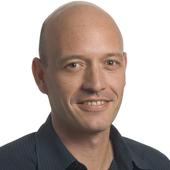
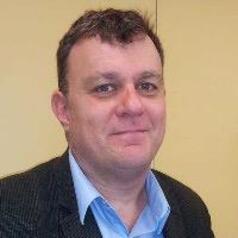
John Moremon
Senior Lecturer in Defence Studies, Massey University
I teach defence studies and war and society in the Centre for Defence and Security Studies, Massey University, New Zealand. My research interests traverse historical and contemporary military operations and air power, and the connectedness between armed forces and society.
My education includes a Bachelor of Arts (Honours) in History from the University of New England, Australia, a PhD in History from the University of New South Wales, and both a Postgraduate Diploma in Museum Studies and a Postgraduate Certificate in Tertiary Teaching and Learning from Massey University.
Less ![]()
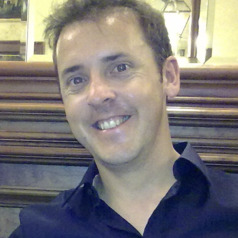
John Morrissey1
Professor of Geography, University of Galway
John Morrissey is Professor of Geography and Associate Director of the Moore Institute for Humanities at the University of Galway. He has published widely in the areas of geopolitics, security and international development. His books include: Haven: The Mediterranean Crisis and Human Security (Edward Elgar 2020); The Long War: CENTCOM, Grand Strategy, and Global Security (University of Georgia Press 2017); Spatial Justice and the Irish Crisis (Royal Irish Academy 2014; Co-edited); and Negotiating Colonialism (Royal Geographical Society 2003). He was a Government of Ireland Fellow at the Center for Place, Culture and Politics at CUNY Graduate Center in New York, and is a former Quatercentenary Fellow at Emmanuel College, Cambridge. He has held additional research fellowships at Virginia Tech, the University of Oxford, and Australian National University. His current research is concerned with critically theorising human security in the wake of COVID-19 and wider global human-environmental crises. In 2021, he was appointed International Consultant on Human Security in the Human Development Report Office of the United Nations. For over 10 years, he has been Programme Director of University of Galway’s award-winning MA in Environment, Society and Development, which addresses key challenges of international relations, global governance and sustainable development, and involves students working on the ground with the United Nations Development Programme in Bosnia. Professor Morrissey has won the President's Award for Teaching Excellence at the University of Galway on two occasions, and is a past recipient of the NAIRTL Irish National Academy Award for Research and Teaching Excellence.
Less ![]()
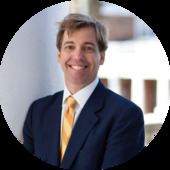
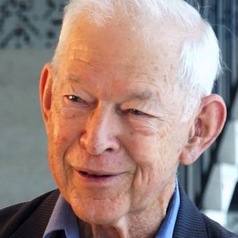
John Nevile
John Nevile was Professor of Economics at UNSW 1965-1992, and is now Emeritus Professor and Visiting Professor. He was elected a Fellow of the Academy of Social Sciences in 1972 and was President of the Economics Society of Australia from 1980 to 1984. John has been a member of government advisory bodies and has also been a consultant for major Australian Government enquiries and for the IMF.
In recent years his research interests have been in the fields of macroeconomic policy, unemployment and history of economic thought, with also an interest in economics and ethics. In 2000 he received the Distinguished Fellow Medal of the Economic Society of Australia.
Less ![]()
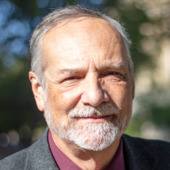

John Pendlebury
Professor of Urban Conservation, Newcastle University
I am a town planner and urban conservationist with ten years practice experience in local government, central government and consultancy before re-entering academia in 1996. I have had many departmental and university roles, including serving as Head of School between 2008 and 2016.
I teach and undertake research on heritage, conservation and planning with a focus upon, first, how historic cities have been planned in the past, considering how the historic qualities of cities were conceived and balanced with modernising forces. Second, I undertake empirical and conceptual work on the interface between contemporary cultural heritage policy and other policy processes. Principal publications include Conservation in the Age of Consensus (2009) as well as the edited collections Valuing Historic Environments (2009 with Lisanne Gibson) and Alternative Visions of Post-War Reconstruction: Creating the Modern Townscape (2015 with Erdem Erten and Peter Larkham).
In 2021 I have a new book out, Conserving the Historic Environment, with Jules Brown:
https://www.lundhumphries.com/products/106972?_pos=1&_sid=918c26ae8&_ss=r
I have around 40 peer-review journal papers and book chapters. Versions of many of these can be accessed through http://eprint.ncl.ac.uk/ or my profile on https://www.researchgate.net . I have received research funding from AHRC, ESRC, EPSRC, British Academy and the EU. My principal current focus is upon collaborative European projects looking at the impact of governance reform on heritage planning and new, inclusive governance models. I have also been developing a project on Heritage and Brexit (with Loes Veldpaus) https://heritagevalue.wordpress.com/.
My research mostly focuses on conservation values and social purpose and the way this translates into strategies of management. It is drawn together in my book Conservation in the Age of Consensus www.routledge.com/books/details/9780415249843/. Broadly the work divides into two themes:
1. Empirical and conceptual work on the interface between cultural heritage policy and other policy processes e.g. social inclusion & regeneration. This interface poses challenges for considering which values are dominant in motivations for heritage protection (e.g. art historical values vs. ‘public values’). Projects include:
Sustainable Adaption – Resilience in Urban Regeneration (ADAPT), Expert Panel Norwegian Research Council funded project (2019-2021)
Heriland, Newcastle Co-I (Newcastle lead, Sam Turner) EU Intensive Training Network (2019-2022) https://www.heriland.eu/
Visiting Researcher Grant for 3 month visiting fellowship at Norwegian Institute for Cultural Heritage Research (NIKU), Norwegian Research Council (2018-2020)
Organizing, Promoting and Enabling Heritage Re-use through Inclusion, Technology, Access, Governance and Empowerment (OpenHeritage), Newcastle PI (overall lead MRI, Budapest) EU Horizon 2020 (2018-2022) https://openheritage.eu/
ESRC impact acceleration account (IAA) – Brexit fund, PI WP2 Heritage & Brexit (2017)
Sustainable Green Markets, regenerating the urban core to sustain socio-cultural heritage and economic activities, co-I (PI Neveen Hamza, Newcastle University AHRC (2016)
UK PI (overall lead Delft) for Joint Programming Initiative (Norwegian Research Council funded) The impact of urban planning and governance reform on the historic built environment and intangible cultural heritage (PICH) (2015-2018). See https://planningandheritage.wordpress.com/
Co-ordinator for EU - FP7-PEOPLE-2011-IRSES funded project Planning, Urban Management and Heritage (PUMAH)(2012-2016), linking Europe and and Chinese HEIs. See http://www.pumah.org/
UK PI (overall lead Delft) for Joint Programming Initiative (AHRC funded) A Sustainable Future for the Historic Urban Core (SHUC) (2013-15). See https://planningandheritage.wordpress.com/
Co-I for EPSRC funded project GLOBAL Sustainable Energy through China-UK Research Engagement (SECURE)(2012-2013), examining issues of retrofitting in co-operation with Chinese partners. See http://research.ncl.ac.uk/globalsecure/
ESRC DTC CASE Studentship (Hannah Garrow) with Architecture Design Scotland (2013-2019) on The Role of Community in Shaping place Identity
Co-I for AHRC funded project (2012) Research for Community Heritage: North East England
Co-Investigator for EPSRC/ ESRC/ AHRC/ English Heritage funded research network (2006-2007) Valuing the Historic Environment: Concepts, Instrumentalisations and Effects. See web-link above. This project led to the book Valuing Historic Environments www.ashgate.com/isbn/9780754674245
ESRC CASE studentship (Dave Webb) with English Heritage (2006-2009) on heritage and areas of low housing demand
AHRC Collaborative studentship (Elli Winterburn) with Newcastle City Council (2006-2009) on characterising housing areas
ESRC CASE studentship (Nick Shore) with English Heritage (2002-2005) on impact of pluralistic approaches to heritage
Participation in ESRC-funded project on Urban Governance using Grainger Town, Newcastle as a case study (1998-1999)
2. Conceptual work based primarily on city case studies of how historic cities have been planned in the past, particularly in the mid-C20, focusing in particular on how the historic qualities of such cities were conceived and balanced with modernising forces. Projects include:
Devastation, dislocation and (re-)settlement: breaking/replacing the peopl-place connection in landscape, Newcastle team member AHRC-DFG award (2022-25)
ESRC DTC CASE Studentship (Sally Watson) with RIBA (2018-2022) Playing out: A study into children’s use of public space in 1970s housing estates
Co-I for AHRC Connected Communities project (2012) Civic Associations and Urban Communities: Local History, Place-Making and Activism in Twentieth Century Britain. See http://www.gla.ac.uk/schools/socialpolitical/research/urbanstudies/projects/civicassociationsandurbancommunities/
Principal Investigator for AHRC-funded project on Thomas Sharp (‘Town and Townscape: The Work and Life of Thomas Sharp’ Resource Enhancement Grant, 2006-2007). See http://catless.ncl.ac.uk/sharp.
Less ![]()
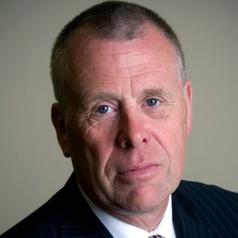
John Podmore
Professor of Sociology, Durham University
John Podmore is an author, freelance criminal justice consultant and journalist. He worked in the Prison Service for 25 years and governed three prisons - Belmarsh, Swaleside and Brixton. He spent three years as an inspector of prisons and carried out a number roles in prison service headquarters as a consultant in offender health and as Head of the Anti-corruption Unit. John left the prison service in March 2011 receiving an award from the High Sheriff of Greater London for outstanding work in criminal justice in London.
John is Honorary Professor in the School of Applied Social Sciences at the University of Durham and an external lecturer at Kings and Birmingham Universities. He is a trustee of the Pilgrim and Longford Trust, a Board member of the drug charity, Addaction and a member of the Homicide Review Advisory Group. He writes for a range of publications including the Guardian and speaks widely in the media and at conferences in the UK and abroad. His first book: Out of Sight Out of Mind, Why Britain’s Prisons are failing was published in January 2012 by Biteback and was been nominated for the 2013 Orwell Prize. He currently Chairs a Commission examining the resettlement of prisoners with alcohol problems and has acted as a script consultant to the BBC drama, Casualty. He has extensive international experience in Europe, USA, Australia and Mauritius. Most recently his work has been with Penal Reform International involving the evaluation of prison projects in Kazakhstan and a training of trainers programme for the prison service in India and for Commonwealth countries across Africa.
Less ![]()
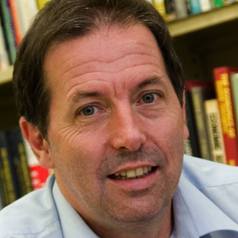
John Quiggin
John Quiggin is an Australian economist, a Professor and an Australian Research Council Federation Fellow and a Laureate Fellow at the University of Queensland, and a member of the Board of the Climate Change Authority of the Australian Government.
He was awarded the Australian Social Science Academy Medal in 1993 and a Fellowship in 1996, received the 1997 and 2000 Sam Richardson of the Institute of Public Administration, Australia, received the 2001 Editors Prize of the Australian Journal of Agricultural Economics, a Fellowship of the Australian Institute of Company Directors in 2002, and a Distinguished Fellowship of the Australian Agricultural and Resource Economics Society in 2004. He is a Fellow of the Econometric Society and in 2011 received the Distinguished Fellow Award of the Economic Society of Australia.
A prolific author and blogger, Professor Quiggin's most recent book, Zombie Economics: How Dead Ideas Still Walk among Us, was published in October 2010 from Princeton University Press.
Less ![]()
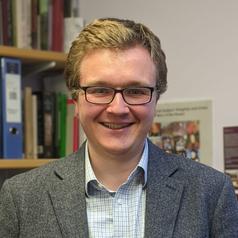
John Reeks
Senior Lecturer in Early Modern History, University of Bristol
Specialises in early modern political and religious history, particularly in relation to the history of the English parish church. His current research interests lie in three main areas:
The English Civil War, with a particular focus on the role played by Bristol and its governors.
The seventeenth-century Church of England, with a particular focus on parish and administrative histories.
The history of the University of Bristol and, in particular, historians working at the university in the period from the foundation of the College (1876) to the retirement of Professor Charles M. MacInnes (1957).
Less ![]()
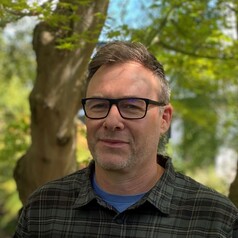
John Reid
Senior Research Fellow, University of Canterbury
My research explores how primary industries can transition to sustainability. I work particularly closely with Māori corporations and land trusts that are leading Aotearoa's transition.
Less ![]()

John Rennie Short
John Rennie Short is an expert on urban issues, environmental concerns, globalization, political geography and the history of cartography. He has studied cities around the world, and lectured to a variety of audiences. Recent books include Urban Theory (2015, 2nd ed.), Human Geography: A Short Introduction (2014), Stress Testing The USA (2013), Cities and Nature (2013, 2nd ed.) and Globalization, Modernity and The City (2012).
Before coming to UMBC in 2002, he was a Professor in the Maxwell School of Citizenship and Public Affairs at Syracuse University. From 1978 to 1990 he taught at the University of Reading UK. He has held visiting appointments as Senior Research Fellow at the Australian National University, as the Erasmus Professor at Groningen University and as the Leverhulme Professor at Loughborough University. Among his research fellowships are the Vietor Fellowship to the Beinecke Library at Yale University, the Dibner Fellowship at the Smithsonian, the Kono Fellowship at the Huntington Library and the Andrew Mellon Fellowship at the American Philosophical Society.
Less ![]()
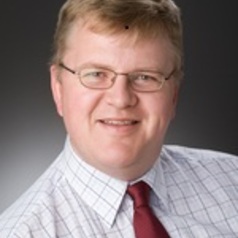
John Rice
Professor of Management, University of New England
John Rice is a Professor of Management at the University of New England Business School. His PhD looked at strategic alliances in mobile telecommunications, and he has other postgraduate degrees in economics, business administration, finance and education.
Prior to joining UNE, he was Associate Professor at the Griffith Business School's Gold Coast campus. Previously his role was as Chief Researcher at the National Centre for Vocational Education Research, based in Adelaide. He has a particular interest in the intersection of worker skills, organisational productivity and social development.
Less ![]()
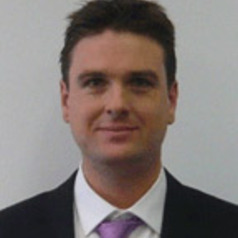
John Rose
Professor of Sustainable Future Transport, University of Sydney
John Rose is the Neil Smith Chair in Sustainable Transport Futures, and is located within the Institute of Transport and Logistics Studies at the University of Sydney. John has nearly 20 years experience working in the transportation sector as a Transport Economist. His most recent area of research interest is in how to promote electric vehicle uptake in Australia, and break down barriers to their adoption.
Less ![]()

John Sands
School of Business, University of Southern Queensland
Qualifications DipGenIns AII , DipMktRsch MRSA , BHotelMgt Griffith , BBus USQ , MPhil Griffith , PhD Griffith
Professional membership FCPA
Research impact (Source Google Scholar) 1,877 citations, H-index 21, i10-index 30, 75 publications
Academic and Leadership Positions Held at University of Southern Queensland, Griffith University, or University Sunshine Coast
Professor (Accounting) 2014-,
Head of Discipline – Accounting (USQ) 2014 - 2016,
Associate Professor and Acting Head of Discipline (2011 – 2014),
Associate Professor Accounting and Assistant Dean Learning and Teaching (USC) 2008 - 2011,
Chair of Faculty Learning and Teaching Committee (USC) 2008 - 2010
Head of Discipline – Accounting (Griffith) 2012,
Registered Tertiary Education Quality and Standards Agency (TEQSA) Experts 2008 - ,
External peer review of accounting learning standards for University of Southern Queensland (Achievement Matters with Professor Phil Hancock and Associate Professor Mark Freeman) 2011-,
National Chair of AFAANZ Management Accounting Special Interest Group (SIG8), 2014 - 2016
Member of the Asia-pacific Environmental and Sustainability Management Accounting Network (EMAN) steering committee, 2011-
Editorial Board of Journal of Accounting and Organisational Change and Australian Research Journal. 2014-
Editorial Board of Accounting Research Journal 2015-
Reviewer panel for several Australian and International Journals 1999 -
Selection of Referred Academic Articles
Arain and Sands 2024, The Intricate Interplay Between Carbon Emissions, Financial Risk, and Valuation, International Review of Economics and Finance Volume 93, Part A, June 2024, Pages 1363-1377
Daff, Sands, and Tame, 2024, Developing reflective practice as a habit for career success, The International Journal of Management Education, In-press
Khalid, Jones, Beattie, & Sands, Distinguishing complexity of environmental factors within a sustainability balanced scorecard (SBCS): A public healthcare performance management study, Accepted for publication by AABFJ in Vol 18 Issue 2, May/June 2025,
Al-Shurafat, Beattie, Jones, and Sands, Obstacles Facing the Development of Forensic Accounting Curricula within the Australian Universities: Exploring Perspectives of Practitioners and Educators, Accepted for publication by AABFJ in Vol 18 Issue 2, May/June 2024,
Hall, Jones, Beattie, and Sands, COVID-19 effect on financial institutions’ board decision-making process, Accepted for publication by Journal of Risk and Financial Management Manuscript 2024, 17, 106 . https://doi.org/10.3390/jrfm17030106, Q2/B
Arian, Sands & Tooley, Industry and Stakeholder Impacts on Corporate Social Responsibility (CSR) and Financial Performance: Consumer vs. Industrial Sectors, Sustainability, 2023, Vol 15., Issue 16, pages 12254
Gholami, Sands and Shams, Corporates' sustainability disclosures impact on cost of capital and idiosyncratic risk, Meditari Accountancy Research, (2023). Vol. 31 No. 4, 861-886 DOI http://dx.doi.org/10.1108/MEDAR-06-2020-0926
Asif Ali, Habib Ur Rahman, Gholami, & Sands, Flight-to-Liquidity and Excess Stock Return: Empirical Evidence From Dynamic Panel Model, Journal of Risk and Financial Management 16 (12), 515,
Arian and Sands, Corporate climate risk disclosure: assessing materiality and stakeholder expectations for sustainable value creation, Sustainability Accounting, Management and Policy Journal,
Rahman, Arian and Sands (2023) Does Fiscal Consolidation Affect Non-Performing Loans? Global Evidence from Heavily Indebted Countries (HICS), Journal of Risk and Financial Management, https://doi.org/10.3390/jrfm16090417
Chong, Mia, Sands, and Wang (2023) The Effects of Performance Measurement System on Innovation Performance: The Roles of Absorptive Capacity and Organizational Learning, Journal of Management Control, https://doi.org/10.1007/s00187-023-00355-0
Gholami Sands and Shams, 2023, Corporates' sustainability disclosures impact on cost of capital and idiosyncratic risk, Meditari Accountancy Research, http://dx.doi.org/10.1108/MEDAR-06-2020-0926
A Gholami, PA Murray, J Sands 2022. Environmental, Social, Governance & Financial Performance Disclosure for Large Firms: Is This Different for SME Firms? Sustainability 14 (10), 6019 https://doi.org/10.3390/su14106019
Al Fadli, Beattie, Jones, and Sands, 2022, Ownership Structure and CSR Reporting: A Jordanian Study, Business and Society Review, 1-30,
Gholami, Sands and Shams, 2022, The impact of corporate ESG performance disclosure across Australian industries, Australasian Accounting, Business and Finance Journal- AABFJ, publication in press
Gholami, Sands and Rahman, 2022, Environmental, social and governance disclosure and value generation: Is the financial industry different?, Sustainability https://doi.org/10.3390/su14052721
Khalid, Beattie, and Sands, 2022. Barriers and Motivations to Integrating Environmental Performance in the BSC: A case study in healthcare, Sustainability Accounting, Management and Policy Journal, Vol. 13 No. 2, pp. 297-319 https://doi.org/10.1108/SAMPJ-09-2020-0325
Al Fadli, A., Sands, J., Jones, G., Beattie, C. and Pensiero, D. 2020, "Board independence and CSR reporting: pre and post analysis of JCGC 2009", International Journal of Law and Management, Vol. 62 No. 2, pp. 117-138
Al Fadli, Sands, Jones, Beattie, and Pensiero, 2020. Board Gender Diversity and CSR Reporting: Evidence from Jordan, Australasian Accounting, Business and Finance Journal, Volume 13 Issue 2, pp. 29-52.
Jayasundara, Jones, and Sands, (2020) Financial and Social Well-being Performance of the Port-of-Brisbane after Privatisation: A Case Study, Australasian Accounting, Business and Finance Journal, Volume 14 Issue 2, pp 71-93.
Alshurafat, H., Beattie, C., Jones, G. & Sands, J. 2020. Perceptions of the Usefulness of Various Teaching Methods in Forensic Accounting Education. Accounting Education, 29:2, 177-204
Khalid, Beattie, Sands, and Hampson, 2019. Incorporating the environmental dimension into the Balanced Scorecard: A case study in health care, Meditari Accountancy Research, Vol. 27(4), pp. 652-674,
Alshurafat, Beattie, Jones, and Sands. 2019. Forensic Accounting Core and Interdisciplinary Curricula Components in Australian Universities: Analysis of Websites. Journal of Forensic and Investigative Accounting, Volume 11: Issue 2, Special Edition. pp. 353-365.
Rae, K., Sands, J. and Subramaniam, N. 2017. Associations among the Five Components within COSO Internal Control-Integrated Framework as the Underpinning of Quality Corporate Governance, Australasian Accounting Business & Finance Journal, Vol 11, Issue 1, pp
John Sands Ki-Hoon Lee K.B.M. Fonseka , 2016, Advancing sustainability management accounting in the Asia Pacific region, Accounting Research Journal, Vol. 29 Iss 2 pp. 134 – 136
Sands, Rae and Gadenne, 2016, An Empirical Investigation on the links within a sustainability balanced scorecard (SBSC) framework and their Impact on Financial Performance, Accounting Research Journal, Volume 29 Issue 2, pp 154-178,
Cameron, Clark, De Zwaan, English, Lamminmaki, O’Leary, Rae and Sands, 2015, The Importance of Understanding Student Learning Styles in Accounting Degree Programs, in Australian Accounting Review, vol. 25 no. 3, pp. 218-231,
Sands and Lee, Environmental and Sustainability Management Accounting (EMA) for The Development of Sustainability Management and Accountability, 2015, Issues in Social and Environmental Accounting,2015, vol. 9 no. 1 pp. 1-4 .
Rae, Sands and Gadenne, 2015, Associations between organisations’ motivated workforce and environmental performance, Journal of Accounting & Organizational Change, Issue 3, Volume 11, pp. 384 – 405,
Sands and Lee, 2015, Environmental and Sustainability Management Accounting, Journal of Accounting & Organizational Change, vol. 11 no. 3 pp. 1-2.
Rae, Sands and Gadenne, 2015 The association between organisational commitment and corporate social responsibility-environmental performance within an integrated sustainability balanced scorecard framework, in Issues in Social and Environmental Accounting, vol. 9 no. 1 pp. 32-50,
Rae and Sands. 2013. Using Classroom layout to help reduce students’ apprehension and increase communication, Accounting Education: An International Journal, Volume 5, No. 22, Oct, pp. 489-491 ((ABDC A)
Rae and Sands. 2013. Creating sustainable benefits for stakeholders of organisations using the strategy mapping framework, e-Journal of Social & Behavioural Research in Business, Vol. 4, Issue 2, pp: 14- 34.
Gadenne, Sands and Mia 2012, 'The Association between Sustainability Performance Management Goals and Organisational Performance', e-Journal of Social & Behavioural Research in Business, vol.3, no.2, Australian Business & Education Research Association, Australia.
Gadenne , Mia, Sands , Winata and Hooi 2012, 'The influence of sustainability performance management practices on organisational sustainability performance', in Journal of Accounting & Organizational Change, vol.8, no.2, Emerald, United Kingdom.
Iselin, Sands, and Mia. 2011. Multi-perspective performance reporting systems, continuous improvement systems and organisational performance, Journal of General Management, Vol. 36 No. 3 Spring, pp. 19-36 (
Iselin, Mia, and Sands. 2010. Multi-perspective performance reporting and organisational performance: The impact of information, data and redundant cue load, International Journal of Accounting, Auditing and Performance, Volume 6, No. 1, pp. 1-27.
Iselin, Mia, and Sands. 2008. Multi-Dimensional Strategic Goal Setting, Performance Reporting and Organisational Performance, Journal of Applied Accounting Research, Volume 9, No. 2, pp. 76-96
Iselin, Mia, and Sands. 2008. The effect of the balanced scorecard on performance: The impact of the alignment of the strategic goals and performance reporting, Journal of General Management, Volume 33, No. 4, pp. 71-85
Rae, Subramaniam, and Sands. 2008. Risk Management and Ethical Environment: Effects on Internal Audit and Accounting Control Procedures, Journal of Applied Management Accounting Research , Volume 6, No. 1, pp. 11-30
Auyeung, Dagwell, Ng, and Sands. 2006. Educators' Epistemological Beliefs of Accounting Ethics Education: A Cross-Cultural Study, Accounting Research Journal, Volume 19, No. 2, pp. 122-138,
Auyeung, Dagwell, Ng, and Sands. 2006. Students’ Perceptions of Accounting Ethics Education: Some Cross-Cultural Inputs, Australian Journal of Accounting Education, Volume 2, No. 1, pp. 53-83. Publication Ranking,
Mia, Iselin and Sands, 2005, The performance effect of benchmarking and the balanced scorecard approach in performance reporting: An exploratory study, International Journal of Business Research, Vol. IV, No. 1,
Auyeung and Sands, 2003. The Learning Styles of Accounting Students: An Extended Cross Cultural Study, Journal of Accounting and Finance, Volume 2, No. .2 pp31-45
Sands and McPhail, 2003, Choice Criteria of Listed Australian Public Companies for Selecting an Auditor: An Exploratory Study, International Journal of Business Studies, Volume 11, No. 1,
Sands and Huang, 2002, An Empirical Investigation on Voluntary Auditor Switching: A Two-Stage Decision Process, Accounting Research Journal, Volume 15, No. 2, pp. 167-185,
Sands and Pragasam. 1998. The Usefulness of International Accounting Topics to Organisations Involved in International Business, Accounting Forum, Volume 22, No. 2, pp. 165-185. Publication Ranking,
Auyeung and Sands. 1997. Factors Influencing Accounting Students’ Career Choice: A Cross-Cultural Validation Study, Accounting Education: An International Journal, Volume 6, No. 1, pp 13-23.
Sands and Pragasam. 1997, Perceptions of Academics in the Asian-pacific Region of the Relative Importance of International Accounting Topics, International Journal of Accounting, Volume 32, No. 2, pp. 187-202.
Auyeung and Sands. 1996. A Cross Cultural Study of the Learning Styles of Accounting Students, Accounting and Finance, Volume 36, No. 2, pp 259-273.
Sands and Pragasam, 1996, Audit Opinions and Auditor Switching: Some Recent Australian Evidence, Asia-Pacific Journal of Accounting & Economics, Volume 3, No. 2,
Sands and McPhail, 1994, An Exploratory Study into the Choice Criteria for Selecting an External Auditor by Australian Listed Companies, Asia Pacific Advances in Consumer Research, Volume 1
Auyeung and Sands, 1994, The Predictive Value of First-Year Commerce Degree Performance for Accounting Majors, Accounting Forum, Volume 18, Issue 1, Publication Ranking
Auyeung and Sands. 1993. An Evaluation of Secondary School Studies for Predicting the Performance of Accounting Majors, Australian Educational Researcher, Volume 20, No. 3.
Sands and Pragasam. 1993. Students' Perceptions about the Usefulness of International Accounting Course Contents: An Australian Study, The International Journal of Accounting, Volume 28, No. 4, pp 325-346.
Published Books
Crosling, Murphy, Cotesta, and Sands, 2005. Writing and Presenting for Accounting. LexisNexis: Australia.
Hansen, Mowen, Sands, Su, and Winata, 2015. A Staircase for Management Accounting, 1st Ed. Cengage: Australia
Hansen, Mowen, Sands, Su, and Winata, 2019. A Staircase for Management Accounting, 2nd Ed Cengage: Australia
Less ![]()
- Market Data























